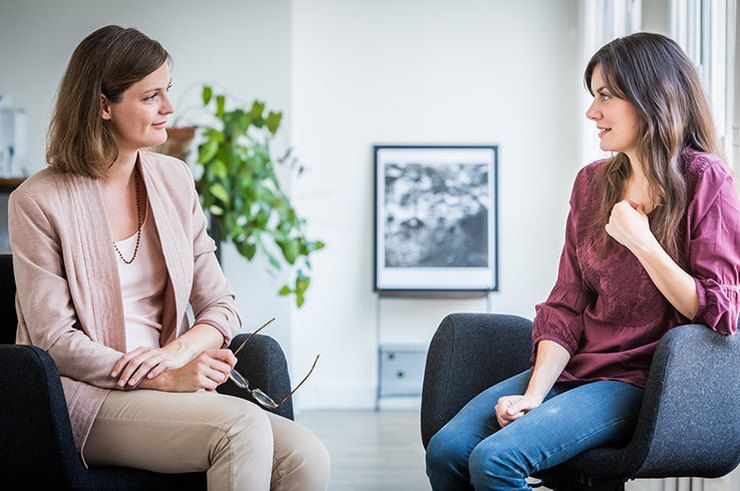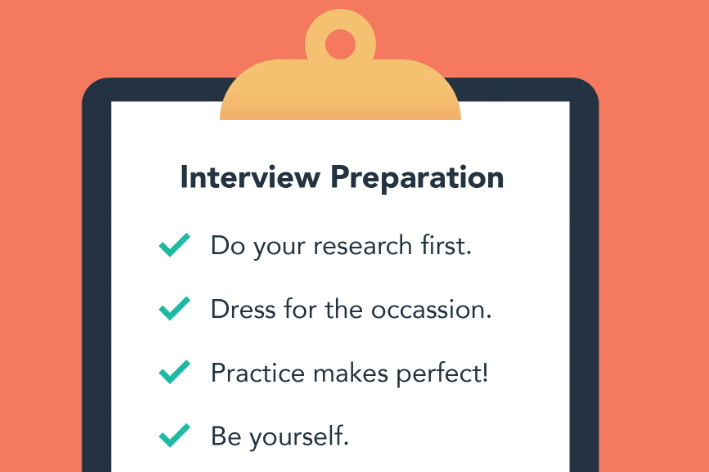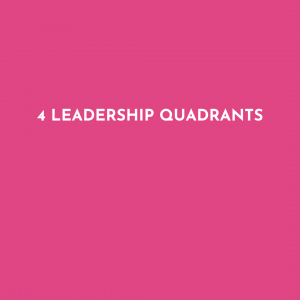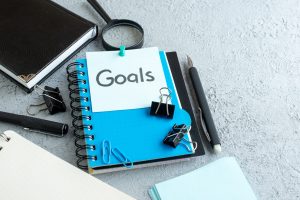Whether it’s your first job interview or you are looking to change jobs the job interview is an obstacle you must overcome. So, how do you begin preparing for an interview with so much relying on it? Check out our interview checklist below for the key things to remember.
But first, remember that you have already completed the most difficult part: To get the company to notice you.
According to Job Market Experts, only 2% of candidates receive a job interview. This means the company have looked at your CV/Resume and they are thoroughly impressed. Now, all you have to do is convince the company that they made the right choice and that you are the perfect fit for the role.

Take a look at our 12-step checklist, add those relevant to you to your own checklist. Good luck, we hope you ace your job interview!
1 Interview preparation
There is no way to get around this one, the interviewer knows whether you have prepared or not. Sometimes an interviewer will send you a set of questions before an interview, so you know what to prepare, sometimes they won’t. Either way it’s important to prepare. So how do you start preparing for an interview?

Company website and social media accounts
A good place to start is with the company website and social media accounts. The questions you want to add to your checklist is:
- What are they communicating?
- Any information about work culture, vision?
- What do they do? If it’s a startup what is the work they have done so far?
- How does that align with your skills and what you’re looking for in a job?
For example, if a company is writing about starting a new CSR initiative and you have experience from working on CSR initiatives, mention that during the interview. That shows two things: That you have experience working with CSR, but also that you really want this job and you are making an effort to understand their business.
Who do you meet at the interview?
Also remember to check out the people who are interviewing you,
- Are they on LinkedIn?
- What do you find when you google their names?
- How long are they in the business?
- What is their skillset and their interests?
Understanding them better helps you identify questions that you can ask them. For example, if they are builing a career in the business you’re applying for a job with, ask them about that. How did that work, did they get training on the job?

What are the opportunities for career progression in the business based on their experience? Add notes about the people you think you might meet to your interview checklist.
Focus on the job description
Third, read the job description and your application again. Did you answer all the questions in the job ad or is there other relevant experience you can mention during the interview? Make sure that it’s 100% clear to you what they are looking for in the job description, do a quick search for other similar jobs, job descriptions and maybe some Glassdoor reviews.
Take note of any questions that you have. Make sure that your questions show an understanding of the job and the industry.
2 When to show up for an interview
Don’t rush in to the interview, make sure you have plenty of time, but don’t show up too early, according to Business Insider 10-15 minutes early is the perfect time to show up. Before you go in to meet with anyone, take a few minutes to calm down. Find a private space, take a few deep breaths and try to assume a power pose. While it may sound silly, assuming a power pose is proven to drastically change your body chemistry

In a study done by Harvard Professor Amy Cudy, the interviewees who struck a high-power pose before the interview were overwhelmingly the ones interviewers wanted to hire. High-power poses resulted in more confidence on the part of the interviewee. So, before your next interview, go into the bathroom and strike that power pose!
3 Presentation
If you have the chance it’s always a good idea to ask before what the dress code is, that gives you an idea of what to wear on the day of the interview. Check out the company on social media as well, do they have pictures up from staff events? What are they wearing? If you’re not certain the general rule is that it’s always better to be overdressed rather than underdressed for an interview.

Make sure that you and your clothes are clean on the day. If you’re wearing nail polish or make-up, make sure that it looks fresh and that your nail polish is not peeling off. It’s easy to forget so add a note to your interview checklist to check the mirror before going out. Check that nothing is stuck to your clothes, that all zips and buttons are closed and you’re ready to go.
4 Body Language
In an interview, first impressions are everything and a large part of that includes your body language. According to Albert Mehrabian from the University of California, Los Angeles, 55% of the messages the brain receives are from body language and only 7% are from words. This means over half of what you communicate to your interviewer, you don’t actually say.

Try to lean forward in the chair, don’t slouch. Many people worry that they are too nervous at an interview and that in itself can become a thing that makes you more nervous. So, try not to stress about that. Mind your self-talk and make sure you are being supportive to yourself before going in. That will impact your body language as well. You can add a note to your interview checklist: It’s fine to be a bit nervous, it just means that you care about the job.
5 Eye Contact
When you greet your interviewer, make eye contact. Often, people rush when greeting their interviewer and because they are nervous tend to look anywhere besides the interviewer.
Eye contact establishes a connection between you and your interviewer. With too little of it, your interviewer might feel that you are uninterested or even hiding something.

Steady eye contact builds trust and lays the foundation for a relationship because someone who actively seeks eye contact while talking is seen to be more competent and confident.
However, it’s also important to remember that too much eye contact can make it seem as if you are trying to intimidate or belittle the interviewer. Keep in mind, you need to walk the line between too much eye contact and not enough.
6 Mind your bad habits
Almost everyone fidgets with their hands when nervous, it happens. However, fidgeting with your hands in an interview can be a huge turnoff. Playing with something on the table, fidgeting with your clothes, or picking at your nails can demonstrate your nervousness.

It’s also important to avoid sticking your hands in your pockets or sitting on them. Keeping your hands visible makes the interviewer more relaxed. Gesturing when talking also emphasizes what you are saying and demonstrates your passion for the topic. Try showing your palms occasionally when gesturing. This indicates openness.
7 Smile
Smiling is such a small act, but an essential one. Offering a genuine smile makes you seem more friendly and helps both you and the interviewer to relax. That being said, a fake smile results in just the opposite.

Keep in mind, the interviewer already knows you are qualified for the job, now they want to know if you are a good fit for the team. Smile and be friendly to the interviewer, it is always a good idea.
8 Posture
Good posture conveys a sense of confidence, authority, and professionalism. If you slouch, chances are you will appear uninterested to the interviewer.

Walking and sitting straight can separate you from a group of candidates with the same experience as you.
9 Highlight What Makes You Unique
Whether it is your previous work experience, your specific skills or education, or something you have the ability to do, bring attention to it. In the interview, highlight what makes you uniquely qualified for this job. For example, you might be able to speak multiple languages.
Use your unique skills and abilities to your benefit. Remember that employer will often google you as well so make sure you update your resume and online presence to show your unique skills too. Add a list of the skills you want to highlight on your interview checklist as a reminder before you go in.

However, be careful of too-much self-promoting. Research by Higgins and Judge suggests obvious self-promotion is ineffective. For instance, instead of talking solely about yourself, mention something you accomplished as a part of a team.
When answering questions in an interview, create a unique response. According to a study by Roulin, Bangerter and Yerly, interviewees who gave a unique response to standard questions were at an advantage because their answers were easier to recall. Being memorable, for good reasons, is an asset in a job interview.
10 Show Interest in the Company
Oftentimes, interviewees spend the interview talking solely about themselves. However, Higgins and Judge suggests that complimenting the interviewer, praising the company, and showing enthusiasm increases your chances of being recommended for the job.

Ask questions about the company. Show your interest in the company, be curious about its values and work culture. Try to convey how this company’s values align with your own or why you feel like you are a good fit for this company.
11 Avoid Canned Responses
Canned, or overly prepared responses, can be just as bad as unprepared responses. A canned response can make you come across as stiff and robotic, whereas an unprepared response can make it appear as though you do not care about the interview.
When asked a question, take a short pause to process it. Listening is as an important part of any interview as talking. When you’re asked a question, listen closely and ask if back to the interviewer if you’re not certain you understood it correctly.

Before answering, take a second to pondering the question. Sometimes you will have thought of a few good answers in advance and that’s fine, but don’t be in such a rush to use your great pre planned answers that you forget to listen to the question.
12 Send a Thank You Email After the Interview
Sending a follow-up thank you note is a good way to demonstrate that you are still very interested in the position and that you have follow-through. People tend to underestimate how pleasing a thank you note is to the interviewer.
In the research article “Undervaluing Gratitude: Expressers Misunderstand the Consequences of Showing Appreciation” Amit Kumar and Nicholas Epley write “Underestimating the value of prosocial actions, such as expressing gratitude, may keep people from engaging in behaviour that would maximize their own—and others’—well-being,”.

Going to an interview often feels stressful because you’re told to walk a fine line. Appear professional, but try not to come across as stiff. Make sure you arrive prepared, but don’t overthink your answers as they may come seem robotic. Promote your abilities but makes sure you do not come off as self-centred. Finding the right balance is what can turn a good interview into a spectacular one.
However, it’s important to remember that in the end the interview is not just to check they like you, but also if this job and the culture is what you are looking for. If you go into an interview pretending to be someone else chances are the job will suit the person you pretended to be better than it suits you. So, add a final question to your interview checklist to remind yourself: Is this job for me?
If you want help preparing for an interview why not ask for the help of a career coach. They can run you through interview questions, help you practice, assist you in preparing your answers and creating your interview checklist, and even offer you more tips on how to ace an interview. Find your coach today.











